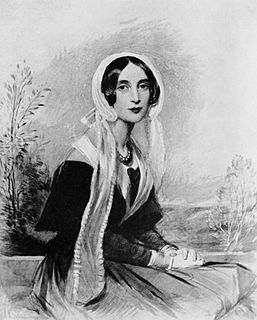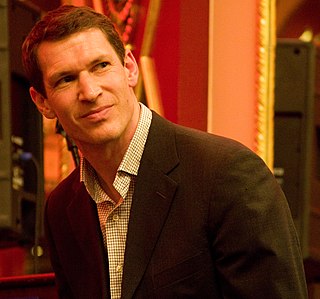A Quote by Mignon McLaughlin
What's for dinner is the only question many husbands ask their wives, and the only one to which they care about the answer.
Related Quotes
If you ask a living teacher a question, he will probably answer you. If you are puzzled by what he says, you can save yourself the trouble of thinking by asking him what he means. If, however, you ask a book a question, you must answer it yourself. In this respect a book is like nature or the world. When you question it, it answers you only to the extent that you do the work of thinking an analysis yourself.
We can each sit and wait to die, from the very day of our births. Those of us who do not do so, choose to ask - and to answer - the two questions that define every conscious creature: What do I want? and What will I do to get it? Which are, finally, only one question: What is my will? Caine teaches us that the answer is always found within our own experience; our lives provide the structure of the question, and a properly phrased question contains its own answer.
Not only, in strict truth, was marriage instituted for the propagation of the human race, but also that the lives of husbands and wives might be made better and happier. This comes about in many ways: by their lightening each other's burdens through mutual help; by constant and faithful love; by having all their possessions in common; and by the heavenly grace which flows from the sacrament.
Do not ask the stones or the trees how to live, they can not tell you ; they do not have tongues; do not ask the wise man how to live for, if he knows , he will know he cannot tell you; if you would learn how to live , do not ask the question; its answer is not in the question but in the answer, which is not in words; do not ask how to live, but, instead, proceed to do so.
Men often joke about this assignment (I Peter 3:7): 'Who can understand a woman?' God has answered the question loud and clear. You can. You can understand a woman. Husbands can understand wives if they will take the time and energy to focus on them as feminine persons who need their husbands' honor.
With soldiers, their wives are so fundamental in their relationships, and yet there's this kind of other war happening back in the States, where wives of soldiers don't quite understand what their husbands have been through, because their husbands won't really talk about it, and that's really the hidden war.
[My father] impressed upon me from the first, that the manner in which the world came into existence was a subject on which nothing was known: that the question, "Who made me?" cannot be answered, because we have no experience or authentic information from which to answer it; and that any answer only throws the difficulty a step further back, since the question immediately presents itself, "Who made God?

































